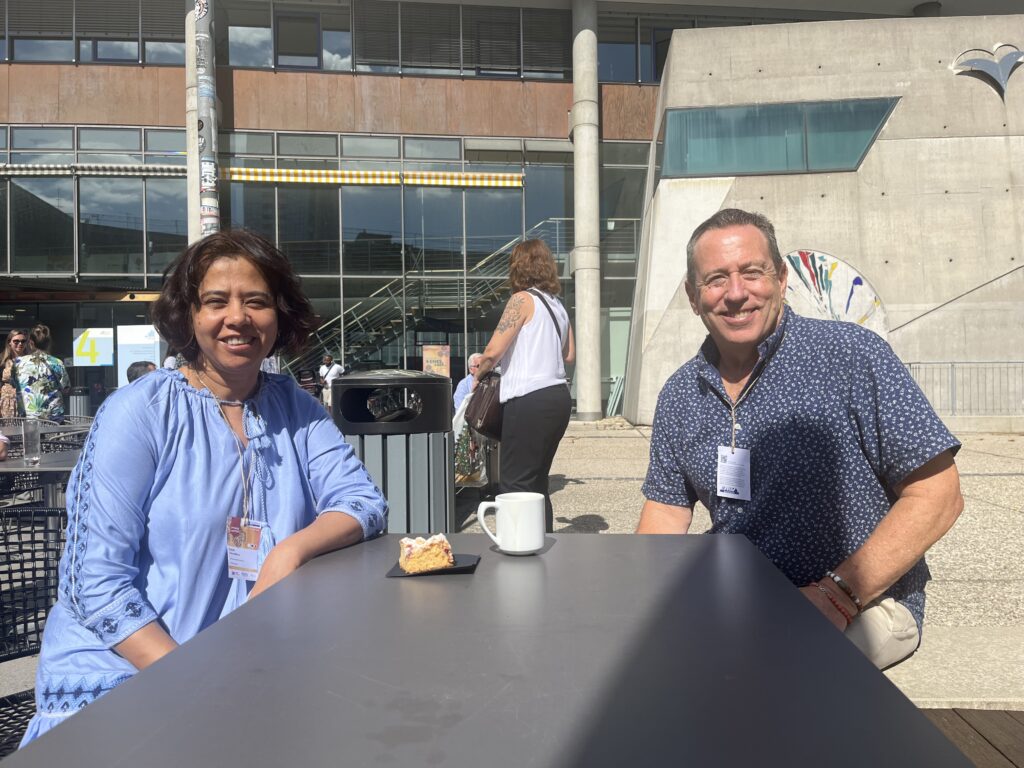Sonali Chowdhary is a Public Policy PhD student in the
Schar School of Policy and Government at George Mason University

I was very pleased to join Professor Alan Abramson in presenting our paper, “What Social Enterprise Policy Lessons Can the US Learn from Other Countries: A Proposed Policy Framework for Social Enterprise in the US,” at the 9th EMES Social Enterprise Research Conference in Frankfurt, Germany in September. The conference theme, “Act locally, change globally: Social enterprises for more resilient economies and societies,” underscores the potential of hybrid, double-bottom-line social enterprises to make a significant positive impact in both smaller communities and broader societies, and the need for robust research about these entities.
_
During the four-day conference, Prof. Abramson and I engaged in numerous stimulating workshops, plenaries, networking sessions, and field visits. These activities provided us important insights into the latest developments in social enterprise activities and policies worldwide. What made the conference particularly enriching was the chance to gain insights from the perspectives of various thought leaders, researchers, practitioners, and policy makers. For example, plenary sessions featured important leaders in the social enterprise field like Sven Giegold, Secretary of State to the Federal Ministry of Economic Affairs and Climate Action in Germany; Sarah de Heusch, Director of Social Economy of the European Union; Giulio Pasi, Scientific Officer at the European Commission, who is working on the relationships between public policy and new markets; and Ilcheong Yi, Senior Research Coordinator at the United Nations Research Institute for Social Development (UNRISD).
It was especially interesting for me and other conference attendees to hear about the new German policy on social innovation from the German Secretary and about the EU strategy on social economy. The thought-provoking discussions and plenaries that featured dialogues between policy makers, eminent scholars, and social entrepreneurs influenced the perspectives of emerging scholars like myself.
One of the conference field visits took conference participants to the Struwwelpeter Museum, a social enterprise in Frankfurt, that recruited its workforce from hard to employ communities. The visit was a great opportunity to talk to the head of the Museum about its business model, which was based on revenue generated from both fees and government support such as social security and VAT exemptions for the enterprise.
I am very grateful to support from the Schar School’s Schar Initiative and its Center for Nonprofits, Philanthropy, and Social Enterprise for providing me this invaluable conference opportunity.
For more information see:
